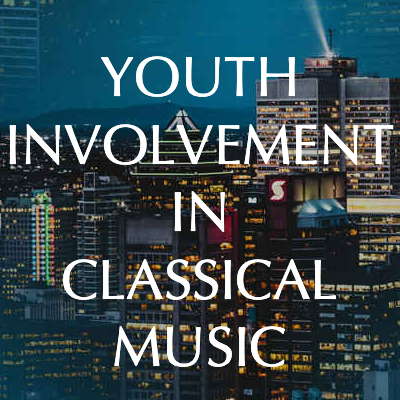- Dumitru Zamfira
- Alfred Deller
- Giovanni Gabrieli
- Yuri Falik
- Artalinna
- Andrea Rush
- Raffaele Pe
- Opera Australia
 UPDATES: There's a new feature every day at Classical Music Daily. Read about the various ways we can keep in touch with you about what's happening here.
UPDATES: There's a new feature every day at Classical Music Daily. Read about the various ways we can keep in touch with you about what's happening here.
 VIDEO PODCAST: John Dante Prevedini leads a discussion about Youth Involvement in Classical Music - this specially extended illustrated feature includes contributions from Christopher Morley, Gerald Fenech, Halida Dinova, Patricia Spencer and Roderic Dunnett.
VIDEO PODCAST: John Dante Prevedini leads a discussion about Youth Involvement in Classical Music - this specially extended illustrated feature includes contributions from Christopher Morley, Gerald Fenech, Halida Dinova, Patricia Spencer and Roderic Dunnett.
Florimond Hervé
French composer, conductor, librettist, scene painter and tenor Louis Auguste Florimond Ronger, more widely known as Florimond Hervé, was born at Houdain near Arras on 30 June 1825. He was part-Spanish by birth. As a boy he sang in the choir at the Church of Saint-Roch in Paris. He studied with Daniel Auber at the Paris Conservatoire, and by fifteen was working as a stage vocalist in provincial theatres and as organist at Bicêtre Hospital in southern Paris. By the age of twenty, he was organist at the Church of Saint-Eustache in Paris.
Hervé, through his theatre Folies concertantes, became the founder of a new era in French operetta, composing a series of works including Les chevaliers de la Table Ronde, Don Quichotte et Sancho Pança, Chilpéric, Le petit Faust and, his most famous work, Mam'zelle Nitouche.
Hervé was the forerunner of Jacques Offenbach's Théâtre des Bouffes Parisiens, and the two composers were jealous rivals until, in 1878, Hervé sang in revival of Offenbach's Orpheus in the Underworld.
Hervé died in Paris on 4 November 1892, aged sixty-seven.
A selection of articles about Florimond Hervé
Insane Buffoonery - George Colerick investigates the musicals of Florimond Hervé, a man of many parts
Ensemble. Carnival in Venice - Giuseppe Pennisi reviews Hervé's 'Les Chevaliers de la Table Ronde'
Ensemble. A Real Joy - 'Le Ventre de Paris', praised by Giuseppe Pennisi

